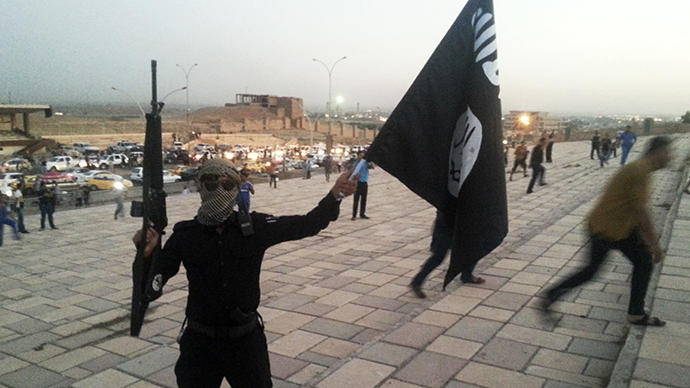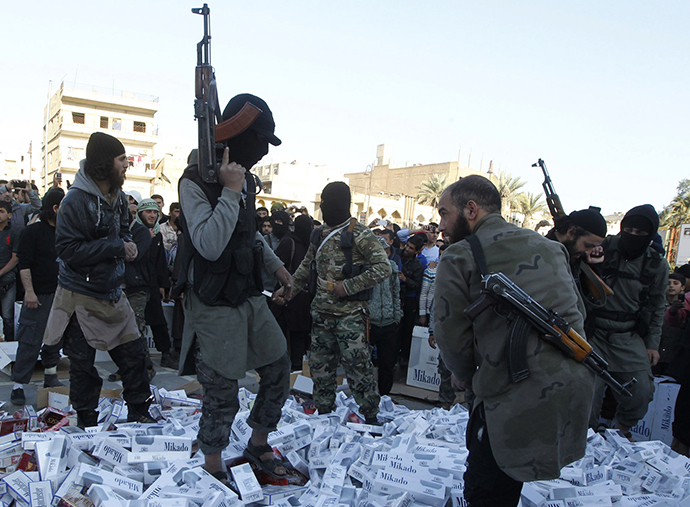‘ISIS is manifestation of US imperial agenda for the Middle East’

The US and its Western allies will use the strategic situation on the ground in Iraq to their advantage, Eric Draitser, independent geopolitical analyst told RT, adding that Washington is seeking to dismantle Iraq using ISIS as a backdoor.
RT:Washington says that it is now sending additional military advisors to Iraq...what does this mean?
Eric Draitser: Well that means that the US is moving forward with a plan that it had for at least a couple of years, that is to say the ousting of PM Maliki, the reconstitution of the Iraqi government and likely the dismemberment of the Iraqi state.
READ MORE:US sends arms to Iraq – to solve problems Washington helped create
Part of the issue here is the so-called Kurdish independence from Iraq and the US and its allies particularly Israel and others have been arming and training Kurdistan now for quite some time. And in fact it seems that ISIS provides the pretext for a long conceived plan to break apart Iraq, part of which becomes an independent Kurdistan in the north. And it should be remembered too that there are lucrative oil and gas contracts particularly for ExxonMobil and some of the western oil as well. There are economic as well as political and geo-strategic reasons why the US wants to use ISIS as the back door to dismantling Iraq.
RT:So in some ways, you're telling us that America is almost welcoming ISIS onto the scene?
ED: Certainly they are using it for their own political purposes. ISIS whether or not they are necessarily following a US agenda or whether these things are simply coinciding with each other are somewhat secondary. What is most important is that the US is shoe-horning its agenda for the region, in particular for Iraq around the facts on the ground.

And the facts on the ground are quite clear. A militant force ISIS is using US weapons, which it both seized from the Iraqi military and which it took from US covert operations in Syria, to execute this agenda. Now the agenda of course is to dislodge Kurdistan, to dislodge pieces of Iraq, to delegitimize Maliki, who has been a staunch ally of Assad, who has been a staunch ally of Iran. So there are very important strategic reasons why Maliki must go; and the US, just as Obama said, they want an inclusive government, which is US-coded language for ‘get rid of Maliki as soon as possible.’
RT:But if that government gets in there, what happens to ISIS?
ED: ISIS will continue to fester just like the tumor that it is. It will continue to wage its war against Assad and the Syrian people. It will expand the war to Lebanon, forcing Hezbollah to fight on two if not three fronts. It will generally destabilize the region, which of course the US and the western powers will use to further their agenda to break the resistance that exists in Syria, the resistance that exists in Iran, the existence that exists in Southern Lebanon. So I think it is naïve to believe that somehow ISIS is a localized problem. It is rather a product, a manifestation of the US policy in the region and the imperial agenda for the Middle East.
The statements, views and opinions expressed in this column are solely those of the author and do not necessarily represent those of RT.
The statements, views and opinions expressed in this column are solely those of the author and do not necessarily represent those of RT.












